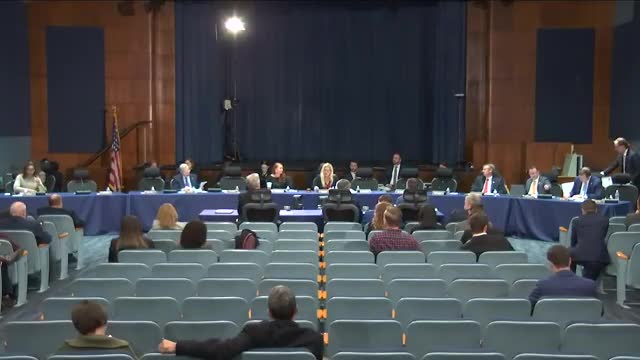Members warn GSA sales could harm local economies, services without careful sequencing
Get AI-powered insights, summaries, and transcripts
Subscribe
Summary
Lawmakers from Washington, Cleveland and other cities pressed witnesses about community impacts of rapid federal building sales, citing potential service disruptions, job losses and depressed sale prices if disposals flood local markets.
Several members used the hearing to spotlight local consequences if federal buildings are sold quickly or without careful sequencing.
Rep. Brown of Ohio objected to a proposed expedited sale of the Anthony J. Celebrezze Federal Building in downtown Cleveland, telling the committee the building houses IRS, Veterans Benefits Administration, Defense Finance and Accounting Services, DHS and the EEOC and warning that selling the building could displace roughly 4,000 federal employees and destabilize downtown services and transit. He said an accelerated three‑year disposal timeline — compared with the usual decade‑long disposition process — risked harming the local economy and public access to services.
Rep. Norton (D‑D.C.) said she opposes relocating federal headquarters out of the National Capital Region and urged orderly disposals that keep employees and services in the region when possible. She pointed to past bipartisan transfers (for example, campus redevelopments such as The Wharf and RFK Stadium) as models for “orderly disposals” and asked witnesses how selling many D.C. buildings at once would affect prices. Witness Ron Kendall said selling into a weak market would yield low proceeds and could even result in public benefit conveyances that return little or nothing to the federal government.
Witnesses also raised statutory and procedural constraints: Rep. Fallon and others noted the McKinney‑Vento Act gives certain homeless assistance providers rights related to federal property conveyances, which some members said should be considered in disposition planning. Members repeatedly pushed witnesses to explain how GSA would weigh economic and social impacts — including potential job losses, transit ridership declines and reduced activity for downtown businesses — against budgetary savings.
GAO and other witnesses recommended sequencing disposals, protecting core properties that support agency missions and allowing data on occupancy and utilization to inform sales timing so markets are not flooded and mission continuity is preserved. Several members requested additional briefings and documentation on planned timelines, local mitigation measures and assurances that relocated services would remain accessible to constituents.
No sales occurred at the hearing; members asked that GSA and agencies provide more detailed plans and timelines and to explain how agency mission needs and community impacts will be evaluated before dispositions proceed.
